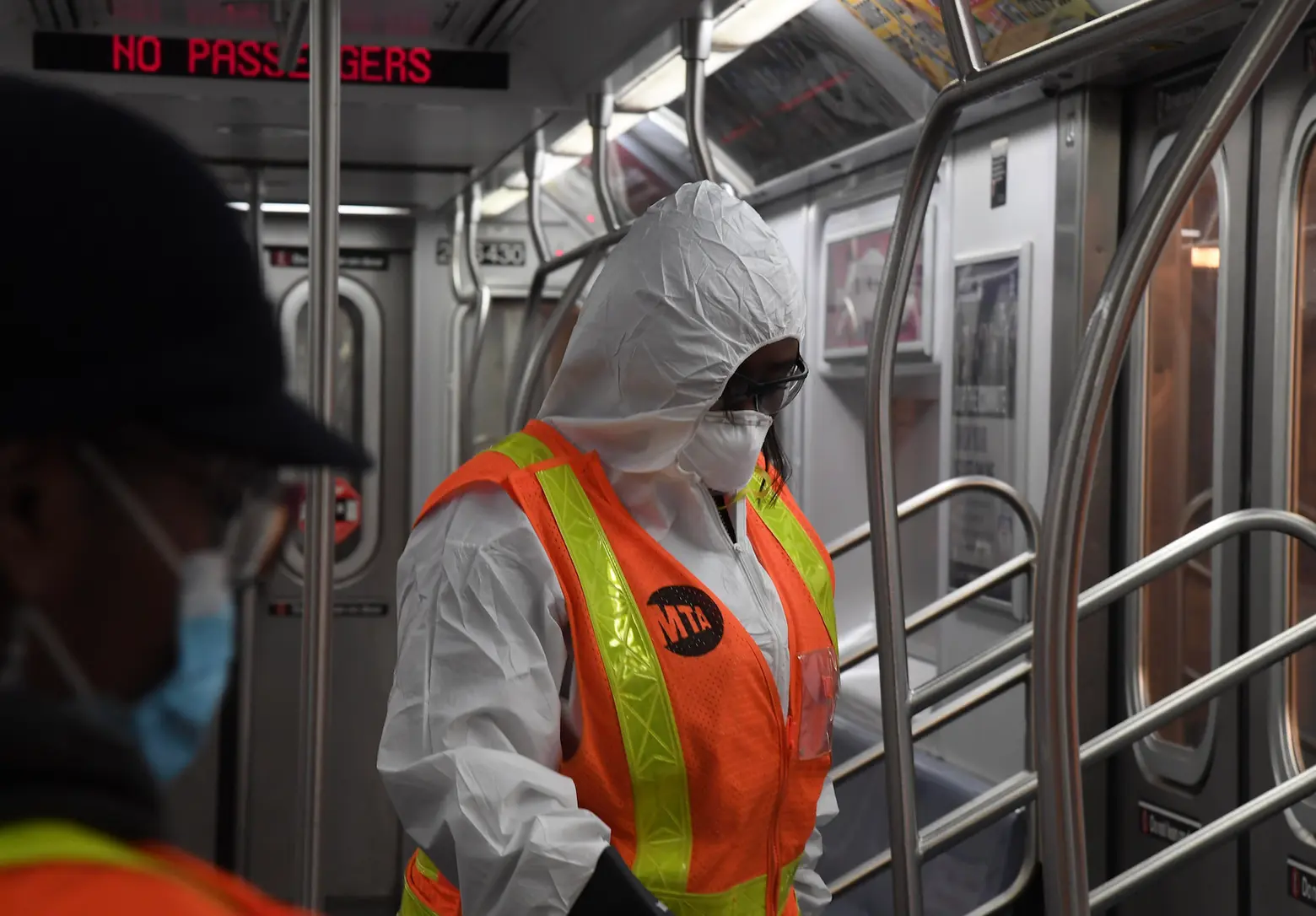24 percent of NYC subway and bus workers have had COVID-19, survey says

Photo: Marc A. Hermann / MTA New York City Transit on Flickr
Nearly a quarter of New York City subway and bus workers reported contracting the coronavirus, according to a survey released on Tuesday. Of the roughly 650 Transport Workers Union Local 100 members surveyed as part of a pilot study led by New York University, 24 percent said they had the virus at some point since the start of the pandemic. The new report suggests more transit workers had the virus than previously thought. In May, Gov. Andrew Cuomo said about 14 percent of transit workers tested positive for antibodies.
The study was commissioned by TWU Local 100 to understand the impact the coronavirus has had on transit workers. Researchers sent surveys to 3,000 transit workers in August and received 645 completed surveys.
According to the survey, 90 percent of the transit workers surveyed said they were concerned about getting sick at work; 4 out of 10 respondents reported an underlying health problem that could increase their risk of complications related to the virus. And 60 percent reported feeling “nervous, anxious, on-edge, and cannot control worrying,” with about 15 percent reported feeling depressed.
“Through gaining a deeper understanding of how COVID-19 has impacted transit workers’ health and quality of life, we can determine how to best support them and protect them moving forward,” Robyn Gershon, clinical professor of epidemiology at NYU School of Global Public Health, who is leading the research project, said in a press release.
At the peak of the pandemic in the city this spring, transit workers still reported to work, bringing doctors, nurses, grocery store workers, and other essential employees to their jobs. The agency was one of the hardest-hit by COVID-19 in the city, More than 130 transit workers have died from the virus and thousands more have tested positive.
In a statement to the Wall Street Journal, MTA spokesperson Abbey Collins questioned the survey’s methodology and said the agency’s infection rate for workers is 7 percent. Citywide, about 27 percent of those tested had the coronavirus antibodies, according to results released by the city in August.
“We hope any future ‘study’ is based on science, data and facts as the MTA’s highest priority remains the safety of our workforce,” Collins told the newspaper.
Based on the preliminary findings, the researchers say the MTA should continue offering tests to workers, but “expand it to better identify and isolate workers who may have the virus but do not show symptoms.” The team also recommends providing workplace mental health services.
“We put the city on our shoulders when the pandemic hit, and we are still carrying it forward,” TWU Local 100 President Tony Utano said in a statement. “It has been a heavy burden. There are now more protective measures against the virus in place than when the crisis erupted, but we can’t let up. We need stay vigilant, and push forward with new and better ways to defend our blue-collar heroes still moving millions of riders a day.”
RELATED:




























